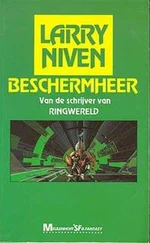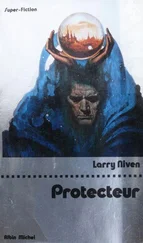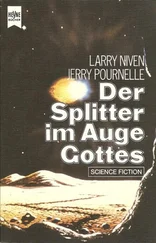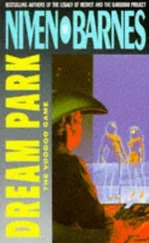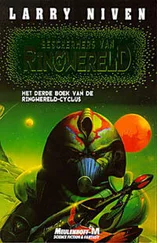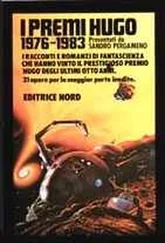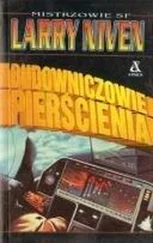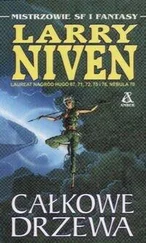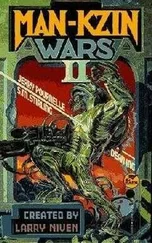Larry Niven - Destiny's Road
Здесь есть возможность читать онлайн «Larry Niven - Destiny's Road» весь текст электронной книги совершенно бесплатно (целиком полную версию без сокращений). В некоторых случаях можно слушать аудио, скачать через торрент в формате fb2 и присутствует краткое содержание. Жанр: Фантастика и фэнтези, на английском языке. Описание произведения, (предисловие) а так же отзывы посетителей доступны на портале библиотеки ЛибКат.
- Название:Destiny's Road
- Автор:
- Жанр:
- Год:неизвестен
- ISBN:нет данных
- Рейтинг книги:5 / 5. Голосов: 1
-
Избранное:Добавить в избранное
- Отзывы:
-
Ваша оценка:
- 100
- 1
- 2
- 3
- 4
- 5
Destiny's Road: краткое содержание, описание и аннотация
Предлагаем к чтению аннотацию, описание, краткое содержание или предисловие (зависит от того, что написал сам автор книги «Destiny's Road»). Если вы не нашли необходимую информацию о книге — напишите в комментариях, мы постараемся отыскать её.
Destiny's Road — читать онлайн бесплатно полную книгу (весь текст) целиком
Ниже представлен текст книги, разбитый по страницам. Система сохранения места последней прочитанной страницы, позволяет с удобством читать онлайн бесплатно книгу «Destiny's Road», без необходимости каждый раз заново искать на чём Вы остановились. Поставьте закладку, и сможете в любой момент перейти на страницу, на которой закончили чтение.
Интервал:
Закладка:
Destiny's Road
Larry Niven
I turned in a draft of Destiny's Road in August 1996, four years overdue. I knew it was an ambitious project, and I flinched from it.
This book is for the people who waited, or advised me, or egged me gently On:
Marilyn, my wife, who reminded me of overdue contracts from time to time;
Tom Doherty, my publisher, who was quietly patient; my former agent Eleanor Wood, with no stake in the book, who waited with the rest;
Jerry Pournelle, my frequent collaborator, who made numerous valuable suggestions as did Robert Gleason, my frequent editor; and Michael Whelan who displayed his magnificent cover painting at the Chicago Worldcon five years ago. He has waited with no patience at all. Our landscapes no longer quite match... but the tree on the peak is his, and I snatched it up and made it the Destiny fool cage.
Thank you all.
1
The Caravan
We have experience of the earlier interstellar colony, Camelot. Considerable information reached Earth from Camelot, describng both mistakes and success, before communication stopped. Destiny is our second try. Destiny—succeed.
—Naren Singh, Secretary-General, United Nations, 2427 A.D. 2722 AD., Spiral TownJunior at fourteen had grown tall enough to reach the highest cupboard. She stretched up on tiptoe, found the speckles shaker by feel, and brought it down. Then she saw what was happening to the bacon. She shouted, “Jemjemjemmy!”
Jemmy's eleven-year-old mind was all in the world beyond the window.
Junior snatched up a pot holder and moved the pan off the burner. The bacon wasn't burned, not yet. not quite.
“Sorry,” Jemmy said without turning. “Junior, there's a caravan coming.”
“You never saw a caravan.” Junior looked through the long window, northeastward “Dust. Maybe it's the caravan. Here, turn this.”
Jemmy finished cooking the bacon. Junior shook salt and speckles on the eggs, sparingly, and returned the shaker to the cupboard. Brenda, who should have been stirring the eggs, and Thonny and Greegry and Ronn—were all crowded along the long window-the Bloocher family's major treasure, one sheet of glass a meter tall, three meters from side to side-to watch what was, after all, only a dust plume.
They ate bread and scrambled hen's eggs and orange juice. Brenda, who was ten, fed Jane, who was four months old. Mom and Dad had been up for hours doing farmwork. Mom was eating poached platyfish eggs. Platyfish were Destiny life; their bodies didn't make fat. Mom was trying to lose weight.
Jemmy wolfed his breakfast, for all the good that did. The rest of the children were finished too. The younger kids squirmed like their chairs were on fire; but you couldn't ask Mom and Dad to hurry. They weren't exactly dawdling, but the kids' urgency amused them.
The long window was behind Jemmy. If he turned his back on the rest of the family, Dad would snap at him.
Junior emptied her coffee mug with no sign of haste, very adult, and set it down. “Mom, can you handle Jane and Ronny?”
Seven-year-old Ronny gaped in shock. Before he could scream, Mom said, “I'll take care of the baby, dear, but you take Ronny with you. He has to do his schoolwork.”
Ronny relaxed, though his eyes remained wary. Junior stood. Her voice became a drill sergeant's. “We set?”
Brenda, Thonny, Greegry, Ronny, and Jemmy surged toward the door. There was a pileup in the lock while they sorted out their coats and caps, and then they cycled through in two clusters, out of the house, streaming toward the Road. Junior followed.
The younger three were half-running, but Junior with her long legs kept up with them. She wasn't trying to catch Jemmy, who at eleven had no dignity to protect.
The sun wasn't above the mountains yet, but Quicksilver was, a bright spark dim in daylight.
The line of elms was as old as Bloocher House. They were twentyfive meters from the front of the house, the last barrier between Bloocher Farm and the Road. To Jemmy they seemed to partition earth and sky. He ran between two elms and was first to reach the Road.
To the right the Road curved gradually toward Spiral Town. Left, northwest, it ran straight into the unknown. That way lay Warkan Farm, where four mid-teens stood in pairs to watch the dust plume come near.
The Warkan children had been schooled at Bloocher House, as had their parents before them. Then, when Jemmy was six, the Bloocher household computer died. For the next week or two Dad was silent and dangerous. Jemmy came to understand that a major social disaster had taken place.
For five years now, Jemmy and his siblings and all of the Warkan children had trooped three houses around the Road's curve to use the Hann computer.
The dust plume no longer hid what was coming toward Spiral Town. There were big carts pulled by what must be chugs. Jemmy saw more than one cart, hard to tell how many. Children from farther up the Road were running alongside. Their voices carried a long way, but it was too far to make out words.
His siblings had filtered between the trees. They lined the Road, waiting. Jemmy looked toward the Warkan kids; looked back at Junior; saw her shake her head. He said, “Aw, Junior. What about class?”
“Wait,” Junior said.
Of course there had been no serious thought of rushing to class. Not with a caravan coming! They'd make up missed classes afterward. Computer programs would wait, and a human teacher was rarely needed.
Children began to separate at Junior's age. Boys spoke only to boys, girls to girls. Jemmy knew that much. Maybe he'd understand why, when he was older. Now he only knew that Junior would speak to him only to give orders. He missed his big sister, and Junior hadn't even gone anywhere.
If Junior went to join the Warkan girls, the Warkan boys would stare at her and rack their brains thinking of some excuse to talk to her. So Jemmy almost understood why the whole family simply waited by the elms while the wagons came near.
The wagons had flat roofs twice as high as a grown man's head. They moved at walking speed. You could hear the children who ran alongside carrying on shouted conversations with the merchants. There were deeper voices too: adults were negotiating with merchants in the wagons.
When the caravan reached the Warkan farm, the Warkans joined them, boys and girls together, it didn't matter. A few minutes later the troop had reached the Bloocher children.
It was Jemmy's first close view of a chug.
The beasts were small and compact. They forged ahead at a steady walking pace, twenty to a cart. They stood as high asJemmy's short ribs. Their shells were the ocher of beach sand. Their wrinkled leather bellies were pale. Their beaks looked like wire cutters, dangerous, and each head was crowned by a flat cap of ocher shell. They showed no awareness of the world around them.
The wagons stood on tall wheels. Their sides dropped open to form shelves, and merchants grinned down from inside.
Jemmy let the first two wagons pass him by. Junior had already forgotten him; the rest of the children went with her, though Thonny looked back once. No eyes were on him when he reached out to stroke one of the chugs. The act seemed headily dangerous. The shell was paper-smooth.
The chug swiveled one eye to see him.
It was hard to tell who was what among the merchants, because of their odd manner of dress. As far as Jemmy could tell, there were about two men for every woman. They enjoyed talking to children. A man and woman driving the third cart smiled down at him, and Jemmy walked alongside. He asked, “Can't you make them go faster?”
“Don't want to,” the man said. “We buy and sell all along the Road. Why make the customers chase us?”
Читать дальшеИнтервал:
Закладка:
Похожие книги на «Destiny's Road»
Представляем Вашему вниманию похожие книги на «Destiny's Road» списком для выбора. Мы отобрали схожую по названию и смыслу литературу в надежде предоставить читателям больше вариантов отыскать новые, интересные, ещё непрочитанные произведения.
Обсуждение, отзывы о книге «Destiny's Road» и просто собственные мнения читателей. Оставьте ваши комментарии, напишите, что Вы думаете о произведении, его смысле или главных героях. Укажите что конкретно понравилось, а что нет, и почему Вы так считаете.

